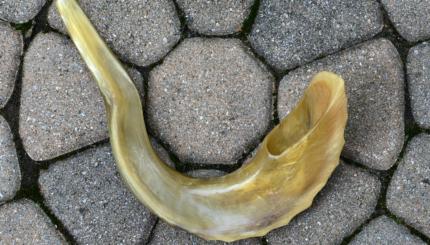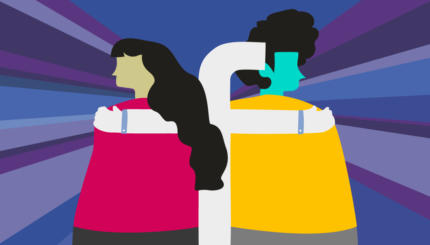Shabbat dinner with young university students can be an adventure. My husband and I warm them up with a few glasses of kiddush wine and we learn a lot about their inner lives.
Sometimes we host our son Eli and his friend Mia. A typical real conversation goes like this. Eli, a biology major, says, “I’ve been thinking about sponges. The kind that live in the ocean, not the kind that live in the kitchen. What if sponges were food? Would you eat them?” Mia, an environmental studies major, says, “How would we farm them? Because, if we harvested them, we would deplete them pretty quickly.”
Sometimes we host our daughter Hillary. and her friend Alex. Their typical real conversation – edited a bit for clarity — goes like this. Hillary, a philosophy major, asks, “Do you believe we bring something into being when we name it? Do we give it objective reality?” Alex, a sociology major, says, “Do you think there really is an objective reality? If there were, would it be socially constructed? By our language? What about weird contradictory cultural statements like, ‘I’m an atheist but I believe in a higher power’?” “Or,” Hillary adds, “‘I feel an energy flowing through the universe but I’m not religious’?”
Then they both giggle. Because they’ve both got enough religion to know that “higher power” and “energy of the universe” are two very old names for God.
But their less traditional friends don’t know this. They use the names to say, “I accept a personal spirituality, but I reject the old cultural forms that have been used to shape it, contain it, and sometimes exploit it.” And even though their beliefs are subjectively very real to them, their language places them in relationship with the same old objective spiritual reality – the higher power, energy of the universe — known to religious people.
On Rosh Hashanah and Yom Kippur, I join the seekers who want to create their own language. Because the traditional liturgy seems quite strange to me. Did I really do exactly 22 kinds of sin, one for each letter of the alphabet? Did God really write the list down in a big book? Did Aaron really cleanse the sanctuary by wiping it down with blood? Can I really change my future and the community’s future by reciting an Aramaic formula? I don’t think so!
Sometimes, the machzor (High Holyday Prayerbook) drives me away from Jewish cultural forms. It pushes me into confidential moral reflection on my own terms, and into my unique spiritual language. In a way, it urges me to turn directly to the Higher Power as I understand it. Thus it brings me straight into the traditional practice of teshuvah – reflection, repentance, and return to God.
Never do I come to high holiday services as a sponge, simply absorbing everything. Every year, I dip into a sea full of spiritual food, and I decide what to cultivate. This, too, is a great adventure.



